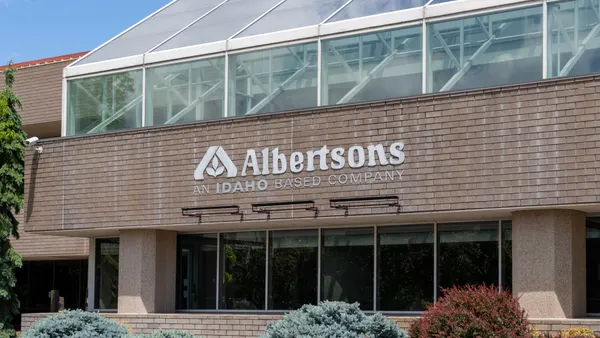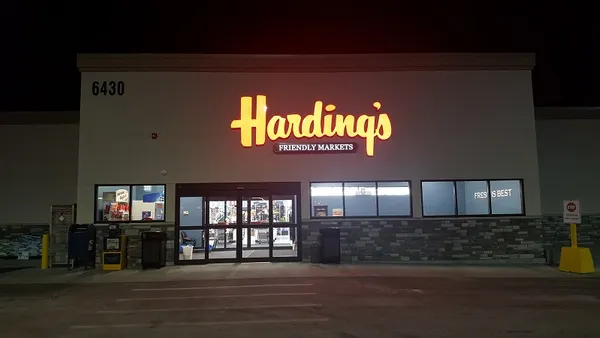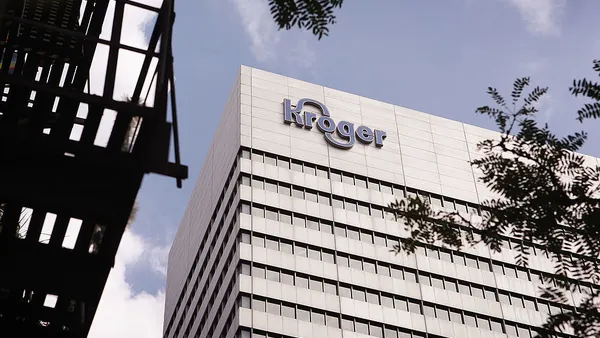Dive Brief:
-
Publix, Aldi and Schnuck Markets were among the winning bidders for stores and a distribution center put on the auction block by Lucky’s Markets, the bankrupt natural foods retailer announced on Friday. The court-supervised auction raised $29 million from 10 bidders who collectively are taking control of 23 Lucky’s stores in Colorado, Florida, Ohio, Missouri and Michigan. Six Lucky’s stores will remain in operation, the company said, and the approximately 500 workers who work in the stores will receive job offers, Lucky’s said.
-
A company led by Bo Sharon, a co-founder of Lucky’s, won the bidding for a pair of Lucky’s locations in Colorado, with an offer of $1.16 million. Sharon and his wife announced in January that they would acquire seven Lucky’s stores shortly after the company sought Chapter 11 bankruptcy protection.
-
Several smaller grocers submitted winning bids for Lucky’s locations. They include Dave’s Market, a 13-store chain in the Cleveland area that bid $1.72 million for two Ohio locations; and Sebra’s Market, which bid $1.25 million for a Lucky’s store in Hunter’s Creek, Florida.
Dive Insight:
The bankruptcy court-supervised dispersion of Lucky’s Market's fleet of stores comes just two months after the once high-flying chain threw in the towel in its effort to thrive as a store that sold good-for-you foods at reasonable prices. Lucky’s business model had once seemed so promising that Kroger in 2016 struck a partnership with the grocer, which was expected to serve as a way for Kroger to enter the Florida grocery market. But Kroger exited the deal in December, with its CEO explaining that it no longer saw the partnership as worthwhile.
Publix, Aldi and Southeastern Grocers claimed more than a dozen Florida stores in the auction, solidifying their positioning in the battleground state. Publix paid $11.5 million for five leased stores located in Naples, Neptune Beach, Clermont, South Orange, and Ormond Beach, Florida. Aldi paid $7.8 million for one owned property in Oakland Park, Florida and five leased locations in Coral Springs, Sarasota, Vineland, Colonial Landing and Venice, Florida. Southeastern Grocers paid $2.4 million for four leased stores in Gainesville, Melbourne, Fort Meyers and Lake Mary, Florida.
Lucky’s ran into trouble because it built stores in areas that were already controlled by competitors, and its flame-out marks the end of its quest to stand out by selling natural foods more affordable than other stores and with a customer-friendly twist. The company’s failure coincided with the collapse of specialty grocer Earth Fare, which lost its way as a local grocer after trying to expand too fast, and Fairway Market, which was felled by debt after attempting to duplicate its New York City-oriented strategy in the suburbs.
What will happen to the Lucky's brand? Shortly after the chain filed for bankruptcy, a group led by co-founders Trish and Bo Sharon announced plans to acquire seven stores, including locations in Colorado, Missouri, Michigan and Florida. However, the group ended up purchasing just two stores — in Boulder and Fort Collins, Colorado. Most of the other locations, including a store in Columbia, Missouri claimed by Schnucks and one in Traverse City, Michigan bought up by Oryana Food Cooperative, will switch over to the acquiring company's brand, according to local reports.
Lucky’s bankruptcy auction took place at the same time that Fairway sold off a chunk of its assets in a similar proceeding. Fairway announced March 25 that a trio of bidders, including Amazon, had won the bidding for six stores and two store leases in an auction that netted $81.5 million. PJ Solomon, the investment banker that has been advising Lucky's, also worked with Fairway.













